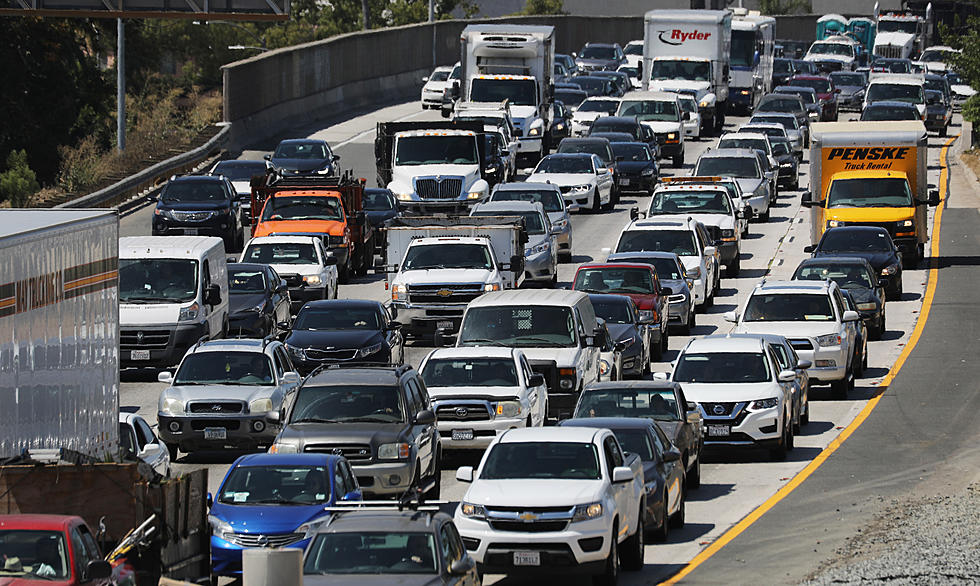
CRC E10 vs E15 Study Outcome Ruffles EPA, DOE Feathers
Utica, NY (WIBX) - The debate on using more ethanol in gasoline is back in the news with a newly released report from a non-profit research group. At issue is whether or not to change the standard gasoline option from E10 to E15.
The testing done by Coordinating Research Council, found that E15 could harm car and truck engines. Regional Director for AAA Central Region, Ed Welsh, is a local car and oil industry expert who says consumers should have a choice. "Perhaps the consumer with the brand new car may choose the E15, and somebody with the older vehicle can then choose the E10 for example. That to me would a much smarter way to go about this than force wide spread use of E15 and not give the consumer the choice that they should have," he said.
Welsh does say that higher levels of ethanol fuel reduces a cars gas mileage and has been proven to be corrosive to certain engines. "So, if you increase the amount of ethanol, what do you think happens to your gas mileage? Well, it goes down even more," he said. He adds that a lot of environmental questions remain to be answered before adopting E15 as the standard fuel.
"There are some flex fuel vehicles being built that can burn this fuel safely, make no mistake about that. The question becomes: Is the efficiency laws and the cost of food prices going up and the other things affected by the fuel itself, is the off-set worth it or not." He says the environmental concern is whether or not E15 contributes to air population. He says the study tries to put a "dagger" into the heart of E15 and adds, "I think the jury's still out whether all the premises of the study are correct or not."
The EPA and the Obama administration support the move to E15, pointing to the Environmental Protection Agency's own 2-year study outcome. Also, The Department of Energy calls the study flawed in this released statement: "The study claims mechanical damage and suggests degraded engine performance, emissions and durability on conventional vehicles from the use of E15 or E20 fuel. We believe the study is significantly flawed. The CRC failed to establish a proper control group, a standard component of scientific, data-driven testing and a necessity to determine statistical significance for any results." In the meantime the debate on the use of ethanol fuel continues, as the nation's leaders look for ways to reduce our dependence on foreign oil.
Welsh shares this Editorial piece published in the Observer Dispatch in 2011.
Is Corn Ethanol still a good Idea?
By Ed Welsh
If we examine how the federal government mandates certain products we would find that it occurs in one of three ways. In no particular order, the first is to subsidize it , the second is to protect it from competition and third is to require its use. Corn Ethanol as used in our gasoline has the remarkable distinction as perhaps the only product that enjoys all three.
Ask yourself, who would purposely buy fuel that’s more costly, gets worse mileage and increases carbon emissions? Due to government mandate, the answer is: All of us!
Since MTBE was outlawed as an oxygenator in our gasoline, E10 or 10% Corn Ethanol was introduced as its replacement. Corn Ethanol supporters touted the product as home grown using our vast agricultural infrastructure, being better for the environment and a first step towards energy independence.
Under a recent EPA ruling, E15 or 15% Ethanol may be coming very soon. Of course, we would not be buying it except by the force of law. So, how did we get here? The first place to look is to the 2007 Congressional edict mandating our country to use 36 billion gallons of ethanol by the year 2022.
We currently use about 11 billion gallons of ethanol per year with little room for growth. The state of the economy and better MPG from newer vehicles has flattened gasoline usage. With stunted gasoline growth, added to a glut of ethanol, the ethanol business has too many gallons of ethanol chasing too few gallons of gasoline. The second place to look is at the very powerful corn lobby in Washington. They along with ethanol producers have a tight grip on the Midwestern congressional delegation.
Corn Ethanol is an energy loser. According to research, it takes about 1.2 BTU’s of energy to create 1 BTU of corn ethanol. At a recent green energy business conference in Athens Greece, environmental advocate and former Vice President Al Gore said that our current corn based ethanol policy was not a good one. I am glad Al is finally warming to the idea (albeit late) that burning your food in the gas tank is not a good idea. In 2010, US Ethanol production is using about 40% of our total corn crop. No wonder corn prices are soaring.
Currently, the EPA has approved E15 for use in 2007 or newer cars and trucks. They have not yet approved it for older vehicles or small engines. It could be disastrous if the E15 mandate is made across the board. As an oxygenator, Ethanol introduces more oxygen into the fuel, making engines run leaner. This means hotter combustion temperatures for older vehicles and equipment that was not designed for such temperatures. On the automotive side the problems could range from increased emissions to reduced catalytic converter life to catastrophic engine failure. The same holds true for recreational and other small engines found in boats, snowmobiles and yard maintenance equipment.
Please note that car and truck engines built from 2007 and newer will run fine on E15. It’s all our older vehicles and equipment that would suffer from E15 use.
On the drawing board is second generation ethanol using cellulosic technologies or enzymes to extract sugar from wood fiber or waste wood or grass. This is a much better choice to help curb our use of oil. If Cellulostic or enzymatic technology proves viable and is introduced properly, the second coming of Ethanol could produce the desired results without government subsidies or heavy handed policy. Energy independence is in our nation’s best interest. Destroying our vehicles and equipment to get there is not.
Ed Welsh is the Central Region General Manager for AAA New York in Utica, an Oneida County Legislator and the host of Autotalk heard every Saturday morning on WIBX AM 950 Radio.
More From WIBX 950









